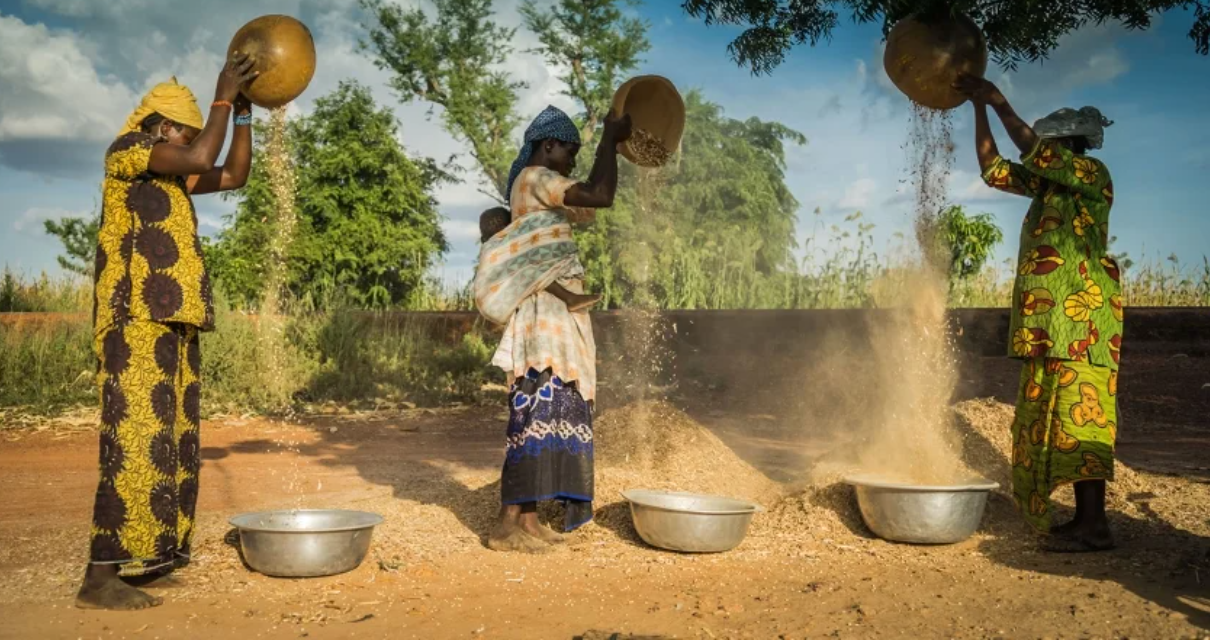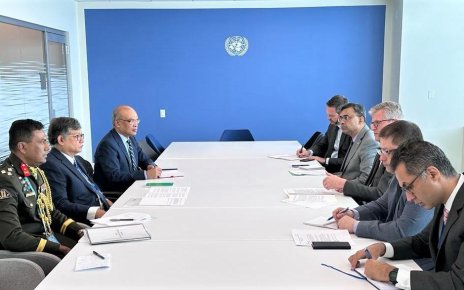GEF deploys additional high-impact climate adaptation funding
The Global Environment Facility’s member countries have approved $203 million in high-impact climate adaptation investment for Least Developed Countries, Small Island Developing States, and other countries needing to reinforce their food systems, water resources, and warning systems as a result of growing climate change risks.
Meeting in Washington DC, the Council of the GEF-managed Least Developed Countries Fund (LDCF) and Special Climate Change Fund (SCCF) agreed to fund 21 projects that build on years of support for critical initiatives that are helping countries address their most urgent adaptation priorities in a way that helps local communities, strengthens policy frameworks, and advances environmental goals for the long term.
It is one of the largest work programs in the more than two-decade history of the LDCF and SCCF, and comes two months after nine donor governments announced new contributions to the unique climate adaptation funds at the UN Framework Convention on Climate Change (UNFCCC) COP28 in Dubai.
The GEF is one of the financial mechanisms of the UNFCCC and has since the Paris Agreement been mobilizing and distributing resources to meet the urgent and specific climate adaptation needs of Least Developed Countries, Small Island Developing States, and other developing countries, following guidance and decisions from parties to the UN climate convention.
Since the commitment of the international community at COP26 in 2021 to double climate adaptation finance by 2025, the GEF has doubled the per-country cap to $20 million for each Least Developed Country accessing the LDCF and $3 million for non-LDC Small Island Developing States accessing the SCCF through its dedicated funding window.
“We are leveling up and quickly deploying donor funding to meet urgent climate adaptation needs, and drawing on our extensive experience to support investments that make direct and meaningful contributions to the resilience of affected people and places,” said Carlos Manuel Rodríguez, GEF CEO and Chairperson.
“The latest work program of the LDCF and SCCF includes important support for the agriculture, fisheries, food security, and water sectors, and includes vital investments in early warning systems and climate information services that are essential to planning and prosperity. We will continue to provide this targeted support where it is most needed thanks to the contributions of our member countries.”
The latest LDCF- and SCCF-funded projects approved by the Council span sectors including agriculture, fisheries, food security, tourism, and water, and also support access to climate information services, early warning systems, and sustainable finance.
They were designed to mobilize additional adaptation finance through multilateral development banks, international financial institutions, and the Green Climate Fund. Nearly half of the projects were co-financed by these partners, and four projects were also financed by the GEF Trust Fund, as part of its $918 million work program approved earlier this week.
The LDCF is the only multilateral fund that focuses exclusively on the unique climate adaptation needs of Least Developed Countries. To date, the LDCF has financed more than 400 projects and programs with nearly $2 billion in grants that have benefited more than 65 million people and strengthened the management of more than 11.4 million hectares of land for climate resilience.
The SCCF helps developing countries address the negative impacts of climate change through innovation, technology transfer, and private sector engagement. It also offers targeted support to Small Island Developing States, given their specific climate adaptation needs. To date, the SCCF has provided $393 million in grants for 100 projects that have benefited approximately 9 million people and helped bring more than 5 million hectares of land under more sustainable management.
The work program approved by the LDCF/SCCF Council includes $180 million for LDCF projects and $23 million for SCCF projects. Their combined work program includes support for 16 Least Developed Countries and eight Small Island Developing States, and will collectively improve the resilience of more than 4.2 million people, improve the climate-resilient management of nearly 1.6 million hectares of land and 1.9 million hectares of coastal and marine areas, support the development of 273 climate adaptation plans and policies, and build the adaptation capacity of more than 1,400 private sector and social enterprises.
During the LDCF/SCCF meeting, Council members also received a report on the performance, results, and lessons learned from the portfolio of projects and programs financed under the LDCF and SCCF since their inception in 2001, and reviewed workshops and other support to countries about programming and ensuring impact from the use of LDCF and SCCF resources.
Evans Davie Njewa, Chair of the LDC Group and Chief Environment Officer at the Environmental Affairs Department of Malawi, welcomed the comprehensive approach and results and stressed the important role of the LDCF in particular as the “first choice” among Least Developed Countries because of its unique features.
“The LDCF and the SCCF are like critical life ropes for LDCs and our 1.1 billion people, in helping us to prepare for and avoid the worst impacts of climate change. My own country, Malawi, has benefitted from valuable LDCF support of more than $40 million in our adaptation efforts and we are ready to do much more,” Njewa said.
“Collectively, as the international community, we need to ensure that both the LDCF and SCCF are more strongly and predictably resourced than ever and target the greatest climate adaptation impact possible. In doing so, we will be supporting shared resilience, opportunity, and prosperity for our world the planet Earth.”





